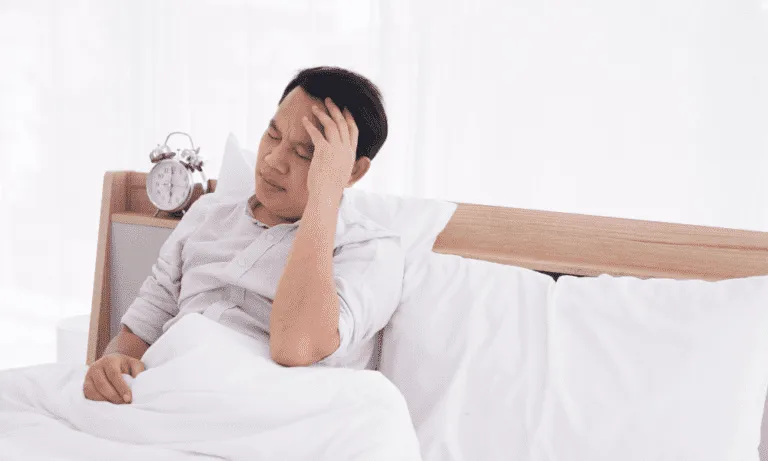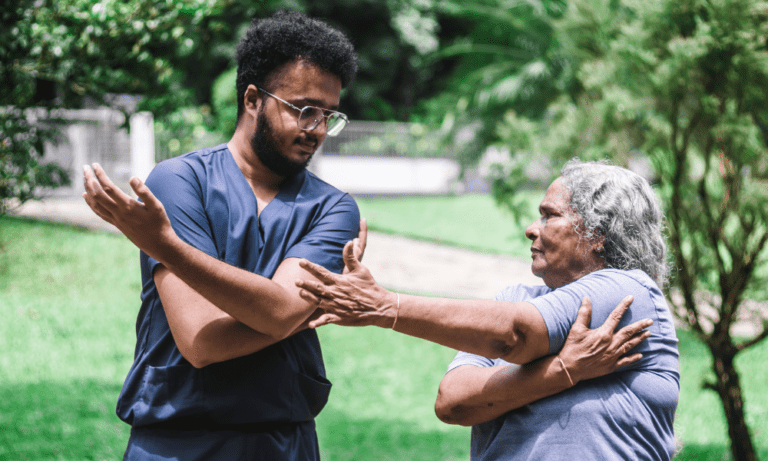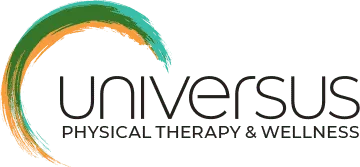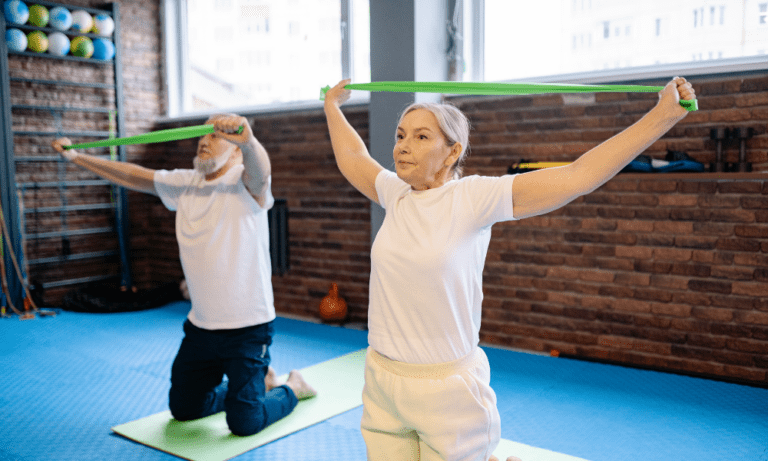Why Am I Losing Energy?
Are you someone who enjoys being active? Do you love going to the gym, going for walks, or playing with your kids and grandkids? Have you begun to feel the effects of your aging and feel as if you lack the energy or strength to engage in daily activities that make you feel human? You’re not alone if you’ve answered yes to any of these questions. Maintaining your strength as you age is vital, but it’s also not easy.
Universus Physical Therapy in Huntington works with many patients aged between 40-60 who are experiencing this same issue. Our team of expertly trained physical therapists provides a comprehensive training program for our patients in order to help them maintain and regain their strength so they can preserve their quality of life.

Our Bodies Natural Aging Process
As we get older, our muscles and bones naturally begin to weaken, our metabolism slows, and our energy levels start to decline. This process, otherwise known as sarcopenia, contributes to the 3-5% muscle loss every decade we experience after age 30, according to Harvard Medical School. This is, unfortunately, an inevitable part of life. However, there are many ways we can slow this natural aging process to optimize living later in our lives. The Universus PT team wants to share our advice on how you can maintain your strength as you get older with a few simple tips.
How Can I Maintain My Strength As I Age?
There are several factors that contribute to maintaining strength and energy as you age, these include:
Moving Your Body
Engaging in physical activity is crucial throughout your life, especially as you begin to age. Movement is arguably the most important factor in keeping your body feeling energized in your later years. Living a sedentary lifestyle leads to the acceleration of this aging process, in addition to a heightened risk of developing a chronic disease or injury. More specifically, the types of exercise older adults should engage in are:
- Resistance Training
- This is arguably the most important form of exercise one can do to maintain strength! This includes the use of standardized strength machines, free weights (dumbbells and barbells), kettlebells, cable machines, sandbags, or even your own bodyweight!
- Aim for 2-3 strength training sessions for about 30 minutes every week.
- It’s best to work with a professional physical therapist or personal trainer for safety and also to get the most out of your training session especially if you are new to resistance training.
- Cardiovascular Training
- Cardio is also an essential aspect of a training program. Cardio training helps improve the strength and efficiency of our cardiovascular and respiratory systems, which are important for engaging in most physical activities. It also improves mobility and blood flow.
- Great forms of cardio include: walking, running/jogging, biking, swimming, hiking, dancing, and kayaking!
- Aim for about 20-30 minutes of cardio about 5 times a week for best results.
- Flexibility and Balance Training
- Maintaining your flexibility and balance is so important for older adults. Good flexibility helps you stay loose, mobile, and pain-free!
- Proper balance is vital for participation in most daily activities as well as the mitigation of slips and falls. An often overlooked form of training, flexibility, and balance should be practiced regularly.
- Great ways to keep up with these types of training are by incorporating things like yoga, tai-chi, pilates, and barre into your weekly routine.

You Are What You Eat!
What you put into your body can define how you feel on a daily basis. And as they say, you are what you eat! So if you are constantly putting junk food into your body, you’re going to feel like junk! Many people get intimidated by the thought of making changes to their diet, but in reality, only small adjustments are needed for you to see changes in your body composition and energy levels. Here are some nutrition recommendations from our team to help you get started:
- Eat More Protein
- Amino acids are the building blocks for our muscles. Amino acids are found in protein. Therefore, by consuming more protein, you are feeding your muscles with the building blocks they need to grow, and recover more quickly.
- The USDA dietary guidelines recommend that adults should consume between 10-35% of their daily calories from protein. Although, your protein intake will be dependent on many factors, including age, weight, activity levels, and genetics. It is also important to supplement your exercise routine with a high-protein diet to get the most out of your training.
- Great sources of protein include lean meat, eggs, and legumes.
- Balance Your Plate
- Be sure to include a diverse group of foods in your diet, especially foods with lots of colors. (no, not processed foods!) This includes different types of fruits, vegetables, and leafy greens.
- In addition to protein, including the two other main macronutrients are important for a balanced diet. These include carbohydrates and fats.
- Unrefined carbohydrates should be the type of carbs that are consumed. Examples include whole grains, potatoes, fruits, and vegetables.
- Unsaturated or “healthy” fats should be included as well in our diet. Examples include vegetable oils, nuts, seeds, and fish high in omega-3.
- Supplementing Your Diet
- As we age, we begin to become deficient in certain key nutrients. Adding supplements to your diet may be considered and help replace any nutrients your body is not producing on its own.
*Please consult your physician regarding any of the above exercise or diet suggestions before implementing them into your routine. These are simply general health recommendations for aging adults and these may not be applicable or safe for special populations who are seeking to improve their health.*

Considering Physical Therapy in Huntington?
As we reach a certain age, we begin to feel aches and pains that were never a bother to us. We may feel as if we don’t need help or professional intervention, and discomfort will just “go away”. Most oftentimes, a pain point you feel now will only linger and possibly worsen over time if not immediately addressed. At first, it may only be a minor inconvenience, but eventually, the pain may hinder your ability to do everyday activities you love, like walking the dog or taking your grandkids to the playground.
Our strength and energy levels are crucial for our longevity and quality of life and should be prioritized. With the help of professional movement specialists, such as our team at Universus PT & Wellness, we can mitigate dwindling energy levels and keep you feeling like yourself. We provide a comprehensive and progressive plan for strength training and injury prevention. Don’t go through it alone, because we have your back and will help you every step of the way.

Contact Universus Physical Therapy & Wellness Today!
If you or someone you know is feeling like you don’t have the energy or strength you once did, you are not alone! Contact us today to learn more about coming in for a FREE Discovery Visit and meet our team and check out our clinic! We would love the opportunity to discuss any problems or concerns you may have regarding your current health status or engaging in a treatment plan. Universus Physical Therapy in Huntington looks forward to seeing you!


